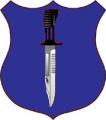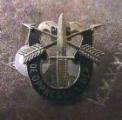Flawed Doctrine or Flawed Strategy?
Ok, having read this I am not going to suggest that the author has not got a legitimate beef with things that are wrong on the ground, but to say that is the result of various debates going back in the US stretches credibility to the extreme.
Now, I have no dog in this fight. What the US Army does is of little interest to me, except, I see US Army ideas filter out of the US Army and break other good armies, so I figure I might as well get in at the source.
Firstly debate is entirely necessary and healthy. If folks know what they are doing, debate about doctrine, should not impact on practise. Only when the doctrine is taught should the effects be seen. So those questioning COIN doctrine cannot be held responsible for its flawed or otherwise application unless some in the food chain are catastrophically stupid.
Now I can’t speak for Gian, but I can articulate my concerns.
Doctrine and Strategy are vastly different. Strategy is political. Doctrine is what is taught. You cannot confuse the two. What the US Army currently has an approach that sees something they call “COIN” as some distinct form of activity, that is (to quote FM3-24):
“COIN is an extremely complex form of warfare. At its core, COIN is a struggle for the population’s support. The protection, welfare, and support of the people are vital to success.” Now that statement my be incorrect, but it's not the problem.
COIN is a form of Warfare, and not a distinct one either. You cannot have separate armies with separate doctrines to fight different kinds of warfare. The British Army fought against major domestic insurgency for 23 years while maintaining the ability to fight the Soviet Army, the Argentines, the Guatemalans, and the Iraqis.
Clausewitz tells us that every war is different. Because insurgents are different, each insurgency will be different. What lessons of the WW2 were germane to War in Korea? The US Army nearly lost Korea, because of the rapid erosion of the skills needed to fight a Regular Army. Big Wars you can loose in weeks. You don’t have the luxury of taking 3 ˝ years to write FM3-24, for example. NO one is arguing that the USA should not be skilled at fighting insurgents, but that should not create an unnecessary degradation of other capabilities. What capabilities are needed is a different debate, but the debate has to happen, and it is entirely healthy.
Creating an Army optimised to fight in Iraq, will not create success in Afghanistan, and vice vera. It will also not guarantee success when you intervene in the next Lebanese, or Jordanian civil war, and it will help none when you are fighting your way into North Korea, (the cease fire is over, is it not), or even Iran – and no one can say “we’ll never do that.” You've done some strange things before.











Bookmarks